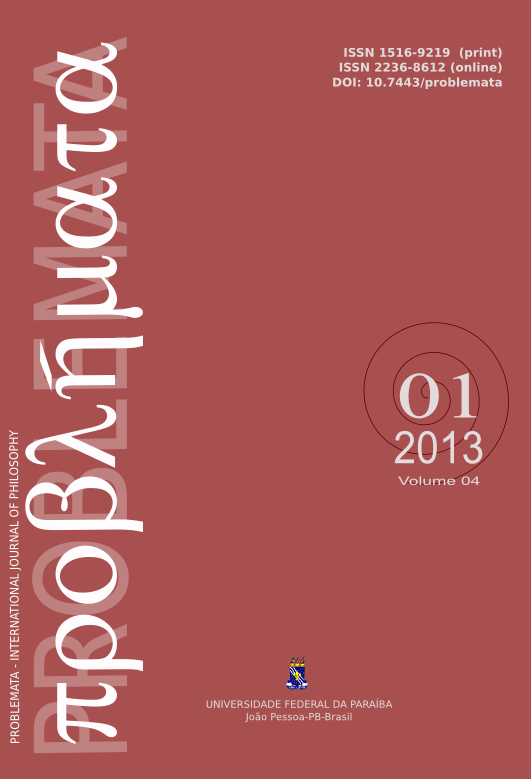The Seriousness of the Knowledge
DOI:
https://doi.org/10.7443/problemata.v4i1.12784Keywords:
seriedade, epistemologia, democracia, narcisismo, imanênciaAbstract
The seriousness is generally understood as a natural psychological counterpart of human devotion to knowledge. However, the analysis presented here demonstrates that it is a component of the ethos of the crossing: a particular moral and epistemological situation in which man seeks a distant, transcendent and higher object. This situation is typical of some kinds of traditional religious, philosophical and scientific knowledge. The fundamental question to be discussed here concerns the relevance or otherwise of that ethos on contemporary situation of the knowledge and subject. Further, we found that the intensification of democratic values in today society have produced a gradual abandonment of hierarchical relationships, including the epistemological framework. Thus, the man no longer seeks transcendent and higher values , since it sees as its exclusive source. This makes clear that the ethos of the crossing has lost its usefulness and the seriousness is no longer a virtue required by the current relationship we have with the knowledge. It is just an old habit inherited from the past that no longer has any epistemological function.
Downloads
Downloads
Additional Files
Published
Issue
Section
License
Authors who publish with this journal agree to the following terms:
- Authors retain copyright and grant the journal right of first publication with the work simultaneously licensed under a Creative Commons Attribution License that allows others to share the work with an acknowledgement of the work's authorship and initial publication in this journal.
- Authors are able to enter into separate, additional contractual arrangements for the non-exclusive distribution of the journal's published version of the work (e.g., post it to an institutional repository or publish it in a book), with an acknowledgement of its initial publication in this journal.
-
- Authors are permitted and encouraged to post their work online (e.g., in institutional repositories or on their website) prior to and during the submission process, as it can lead to productive exchanges, as well as earlier and greater citation of published work (See The Effect of Open Access).





